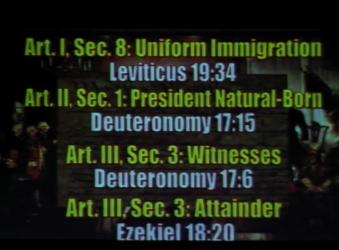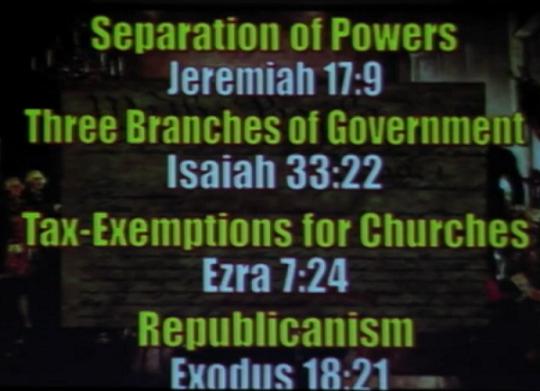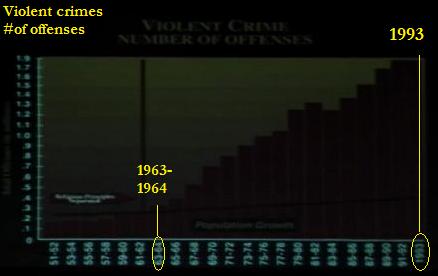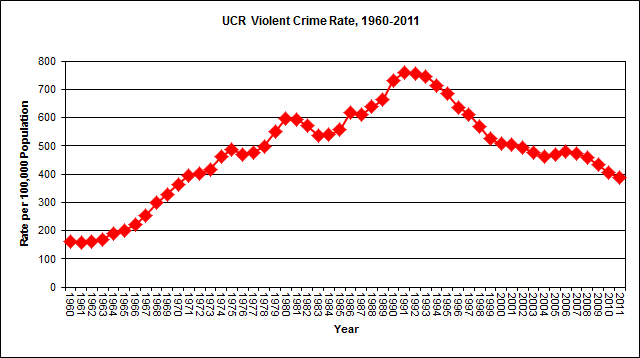In his speeches to churches, David Barton asserts that there are Bible verses throughout the Constitution. On past occasions, he has said that the Constitution quotes the Bible verbatim. In his recent appearance before Crossroads Church in Oklahoma City, OK, Barton said people today don’t recognize these verses in the Constitution because they are ignorant about the Bible. He begins his discussion of the Bible and the Constitution at about 12 minutes into the following sermon:
Barton said:
It’s significant that if you know the Bible and if you read the Constitution, you see Bible verses throughout the Constitution. You see Bible verse after Bible verse that is noted in the Constitution. Now today, we have a lot of people who say, no, no, the Constitution is a secular arena, the Constitution is a secular document. When somebody tells me the Constitution’s a godless document, that simply tells me, they wouldn’t know a Bible verse if they saw one; if it bit them on the ankle they wouldn’t know what a Bible verse was. See what happened is the Constitution is filled with Bible verses, Bible references, Bible phrases, and Bible terminology cause back then, they didn’t see any reason to tell you it came out of the Bible because back then everybody knew that. They didn’t put it, but we’re so biblically illiterate today, we don’t recognize that.
Timothy Dwight must have been biblically illiterate. Dwight was a prominent Congregationalist minister and the president of Yale from 1795 to 1817. On July 23, 1812, Dwight preached a sermon before his students and faculty where he lamented the low spiritual status of the day. The occasion was a public fast called by the Connecticut governor in opposition to the War of 1812. Saying the nation had three reasons to fear the future, Dwight had strong words to say about the Constitution.
The second of these reasons is, the sinful character of our nation. Notwithstanding the prevalence of Religion, which I have described, the irreligion, and the wickedness, of our land are such, as to furnish a most painful and melancholy prospect to a serious mind. We formed our Constitution without any acknowledgment of God ; without any recognition of his mercies to us, as a people, of his government, or even of his existence. The Convention, by which it was formed, never asked, even once, his direction, or his blessing upon their labours. Thus we commenced our national existence under the present system, without God. I wish I could say, that a disposition to render him the reverence, due to his great Name, and the gratitude, demanded by his innumerable mercies, had been more public, visible, uniform, and fervent.
Dwight was adverse to heresy and was considered to be a champion of orthodoxy. He defended the Apostolic writings as inspired when the Unitarians and others rejected them. Dwight did not see Bible verse after Bible verse in the Constitution. Should we say he was biblically illiterate?
See below for the verses Barton claims to quoted in the Constitution:

Related Post:
David Barton’s Biblical Constitution: What if the Constitution did quote the Bible?


